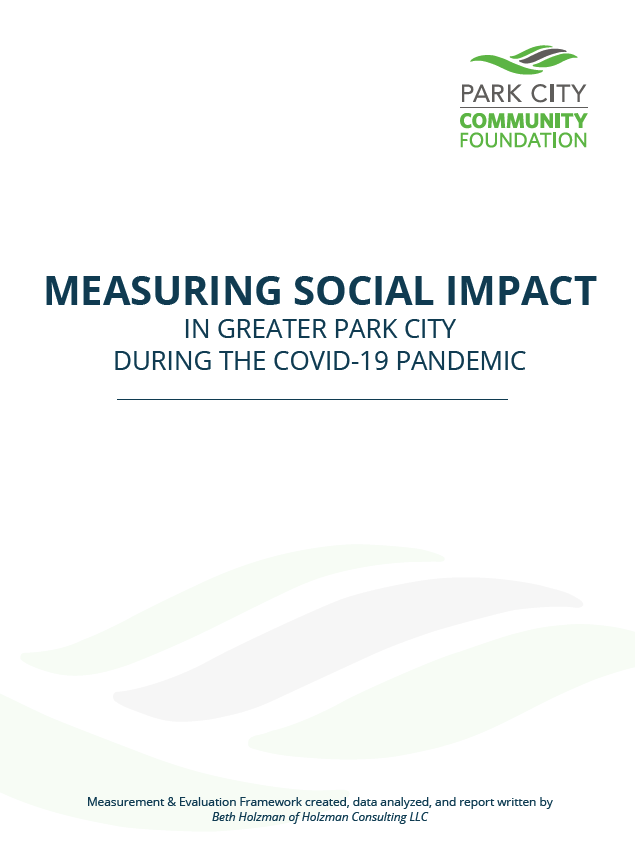SEE THE ENTIRE REPORT »
Summary: Community Response Fund Measurement & Evaluation Report
The COVID-19 pandemic has created unprecedented public health challenges across the world, including here in greater Park City and Summit County, Utah. Every person has been impacted by the novel coronavirus (COVID-19) in some way, but the most highly impacted people living and working in Summit County are those facing the greatest challenges to simply meet basic needs—such as paying bills, staying in their homes, having enough food to eat, achieving physical and mental health and safety, and attaining education.
Beginning in March 2020, Park City Community Foundation activated its Community Response Fund to bring together philanthropy, government, and business partners to rapidly deploy resources to those who are most highly impacted by COVID-19. The purpose of this report is to provide analysis of how greater Park City has fared during this challenging time, including positive outcomes supported by funds deployed to keep our community intact.
This report is based on a data-driven approach to measure the activities and outcomes of organizations that provided support to those in need. The Community Foundation used a new process, based on the creation of a Measurement & Evaluation Framework that is intended for use by both the Foundation and grantees to collect and report data in order to improve decision-making about resource allocation and achieving desired outcomes. Analysis of grant recipients’ data was evaluated according to 5 themes, which also reflects how this report is organized:

Findings show that grantees provided over 2150 families with emergency financial assistance for basic needs and over 1550 families with bills assistance. Over $1.7 million was distributed for rental assistance. Nearly 100,000 meals were provided by the food pantry and school programs to support people who experienced food insecurity. Free and reduced cost services for physical health, mental health, community connections, and personal security were afforded to community members in need. 165 children were enrolled at low or no-cost in childcare programs of grant recipients, and school-age kids were able to stay safe and in school as much as possible. Some of these results reflect new and unique programs created during the pandemic to keep our community intact. Others reflect nonprofit organizations’ ability to sustain as vital resources in greater Park City. It’s clear our community banded together to support those most in need during this period of unprecedented health and economic challenges.
However, none of the issues faced during the COVID-19 public health crisis is unique to pandemic. The deployment of Community Response Fund grants has shown that systemic challenges exist in greater Park City – such as many community members living and working here experiencing a lack of stable and well-paying jobs, and a housing crisis driven by the gap between affordable units and wages. These systemic issues – including all themes covered in this report – are interconnected. We need to find ways to address root causes at scale over the long term in our fluctuating tourism and service economy – in addition to the near term with the continuing uncertainty of the pandemic. The measurement and evaluation project served as a learning exercise for the Foundation and grantees to better understand and strengthen the use of data to drive decisions that result in the greatest social impact. By connecting grant recipients’ initiatives to wider community outcomes, we can collectively work towards improved community resiliency with a focus on inclusion and equity for all.
